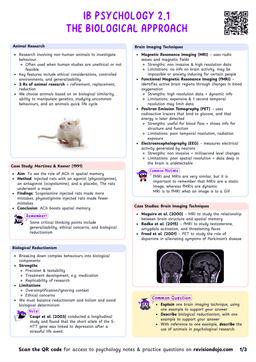Biological Explanations of Interpersonal Relationships
Chemical Messengers
- Oxytocin, Vasopressin, and Dopamine are key neurotransmitters that play a significant role in bonding, trust, and love.
- They are all part of the endocrine system, where hormones are secreted by glands and transported by blood.
- They bind to target cells to either increase or decrease their function.
Oxytocin
- Often called the "love hormone," oxytocin is released during physical touch, childbirth, and sexual activity.
- It promotes feelings of trust and attachment.
Baumgartner et al. (2008): Participants who received oxytocin were more likely to trust others, even after experiencing betrayal.
Vasopressin
- Vasopressin is linked to long-term commitment and monogamous behaviors, especially in males.
- It influences social bonding and pair formation.
Winslow et al. (1993): Prairie voles with higher vasopressin levels exhibited stronger pair-bonding behaviors.
Dopamine
- Dopamine is associated with the reward system in the brain, creating feelings of pleasure and motivation.
- It reinforces behaviors that are pleasurable, such as spending time with a loved one.
Fisher et al. (2005): Brain scans of individuals in love showed increased dopamine activity in areas related to reward and motivation.
Critical Thinking
- Bidirectional ambiguity: do hormones cause us to feel love or does love cause the release of hormones?
- Studies typically show a strong correlation between hormones and behaviour.
Cognitive Explanations
Equity Theory
- Equity Theory suggests that relationships are maintained when both partners perceive fairness in the distribution of resources (e.g., time, effort, affection).
- Imbalances can lead to dissatisfaction and conflict.
Hatfield et al. (1979): Couples who perceived their relationships as equitable reported higher levels of satisfaction.
Similarity-Attraction Hypothesis
- People are more likely to form relationships with those who share similar attitudes, values, and interests.
- Similarity reduces conflict and increases mutual understanding.
- A partner's validation of someone's beliefs may reinforce self-esteem.
Byrne (1971): Participants rated strangers with similar attitudes as more likable and attractive.
Markey and Markey (2007)
Aim
Is perceived similarity a factor in partner selection?
Method
- Participants completed a questionnaire answering about their beliefs and then the beliefs of their ideal partner.
- Filler questionnaires were completed to deceive participants of the true aim of the study.
Results
Similarity was deemed important.
Critical Thinking
- Self-report data may lack reliability.
- However, deception removes demand characteristics.
Communication and Language
The Role of Communication
- Effective communication is crucial for resolving conflicts and maintaining healthy relationships.
- Active listening, empathy, and assertiveness are key skills.
- Some couples may avoid communication to avoid conflict, where others may be more open to discuss issues.
Gottman (1994): Couples who used "I" statements and avoided criticism were more successful in resolving conflicts.
Saunia and Reid (2008)
Aim
Do people who believe in traditional marriage roles have less satisfaction?
Method
One partner completed a questionnaire about attitudes towards marriage, communication style, and marital satisfaction.
Results
- Those with more traditional communication styles were not necessarily less satisfied.
- It was rather the combination of traditional roles and not listening to their partner's opinions that decreased satisfaction.
- Therefore, listening is important.
Strategies for Improving Relationships
Social Exchange Theory
- Relationships are maintained through a cost-benefit analysis.
- Benefits should outweigh costs in the long term.
- Balance is also important in this theory.
Critical Thinking
- Costs and benefits are subjective.
- In Norway, couples who split housework evenly had a 50% higher divorce rate than when the woman did all the housework. This could also be interpreted as having clear cut expectations from both parties.
Investments into a relationship can include:
- Financials
- Housework
- Communication
- Activities
- How can communication differ across relationships?
- Name one hormone and how it works in relation to interpersonal relationships.
- List some strengths and limitations of social exchange theory.


